Author, Teacher, Friend

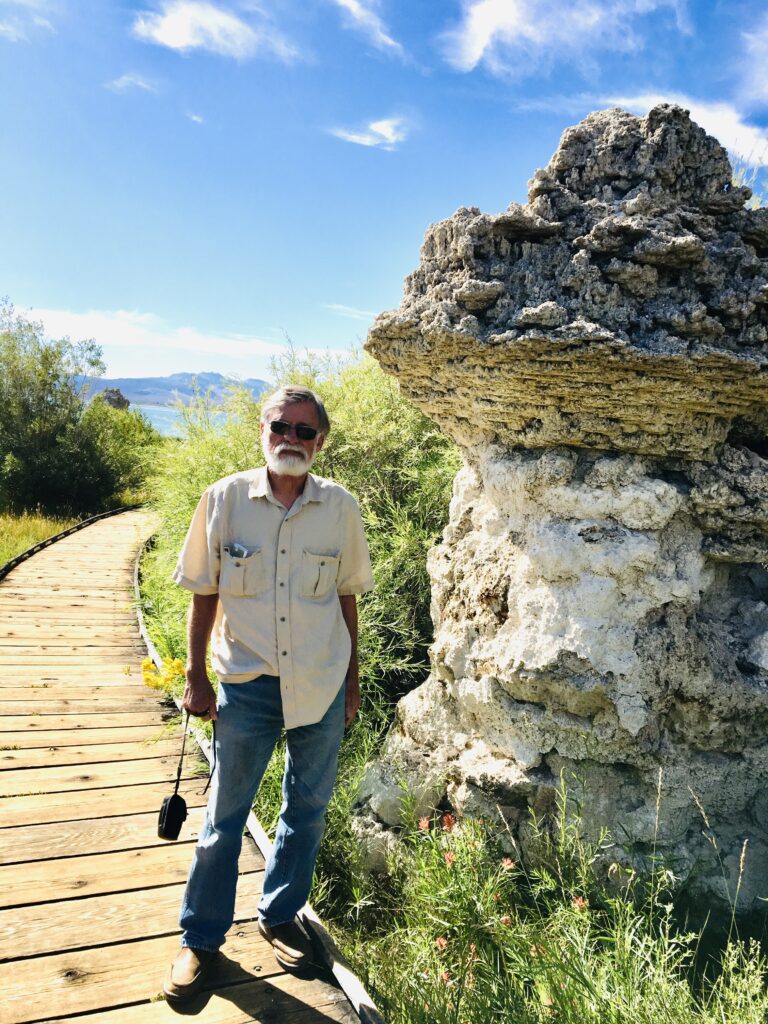
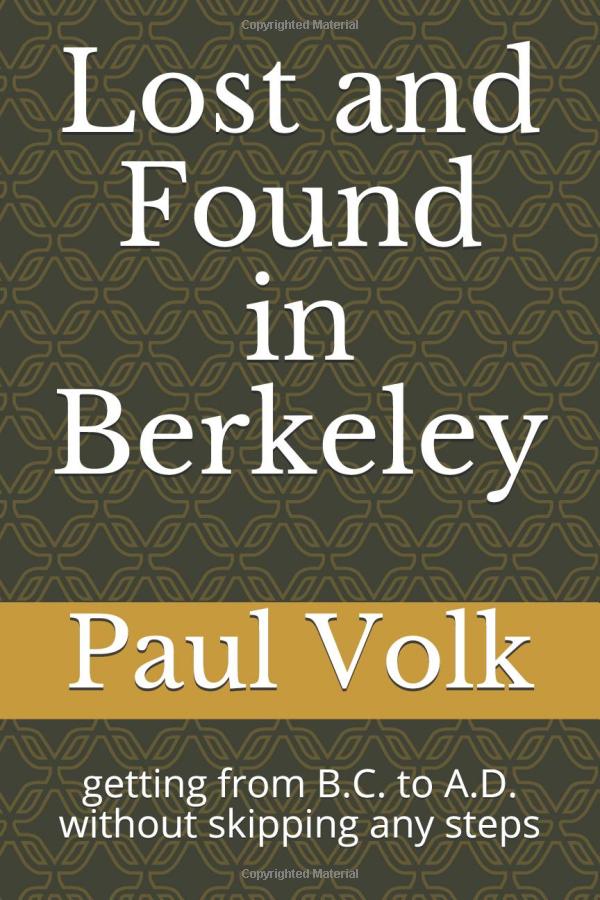
Biography
The son of Jewish/Russian immigrants, Paul Volk was born in Brooklyn, New York where he studied and taught philosophy for several years before leaving Brooklyn for Berkeley, California. There he explored Hinduism, Buddhism and New Age thinking before being encountered by the Gospel in 1973. He and his wife Adrienne lived in a Christian community for eight years in Northern Minnesota and traveled to India, Europe, Ghana, Brazil, China and Zambia where he taught and spoke on the Gospel and Christian faith. He and his wife Adrienne have been working with and serving visiting scholars and students from China for over twenty-five years. Currently they are living outside of Boulder, Colorado where their daughter and family are residing.
Books
All books available on Amazon

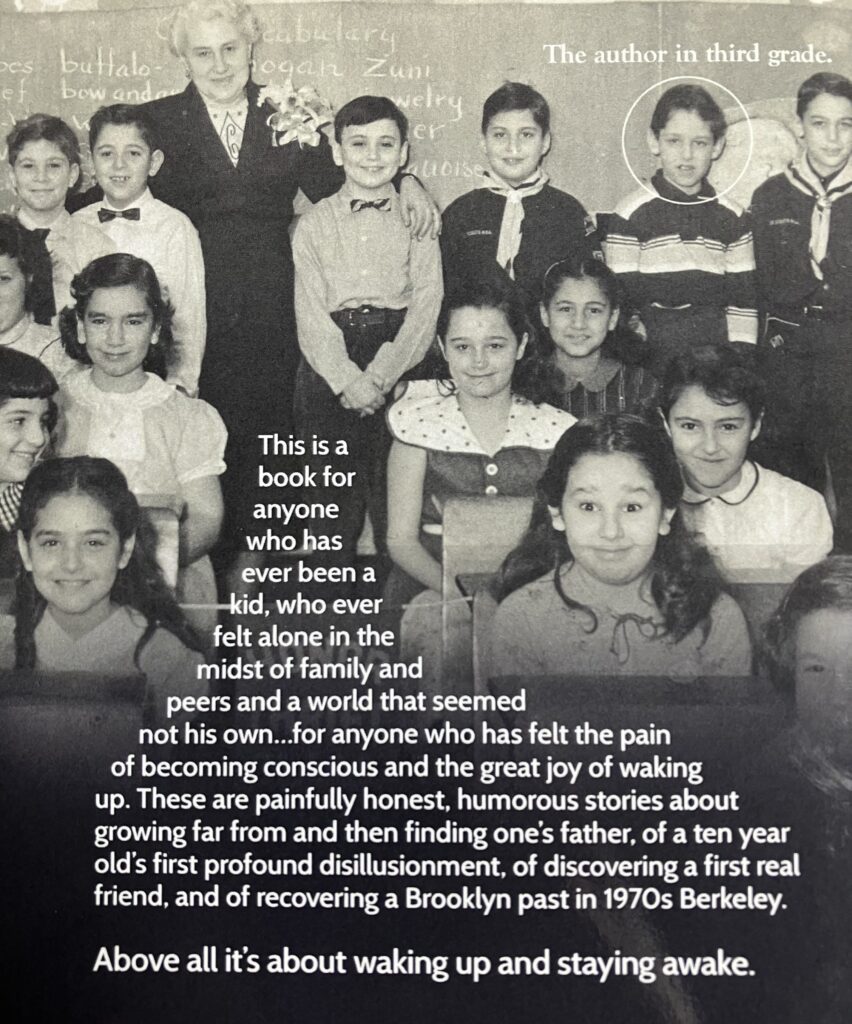
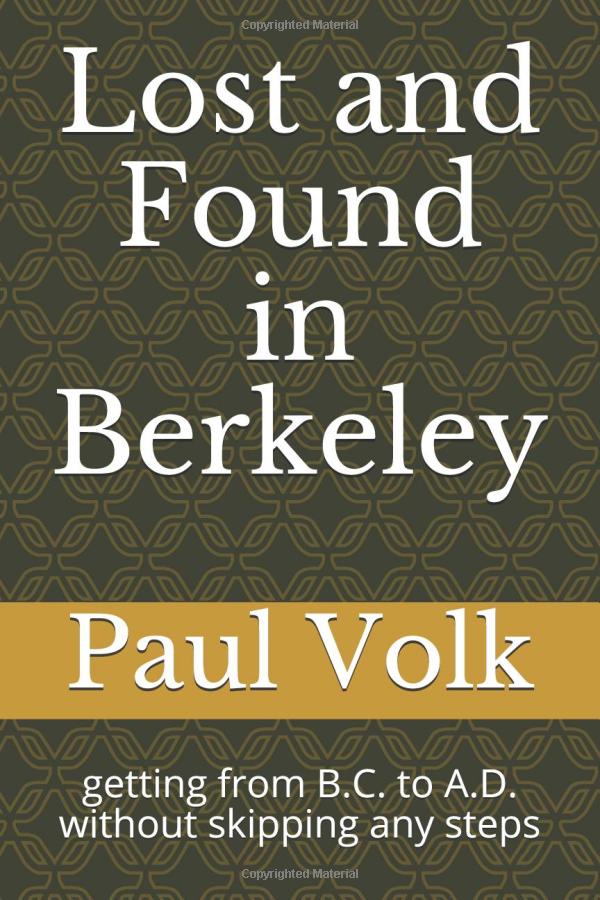
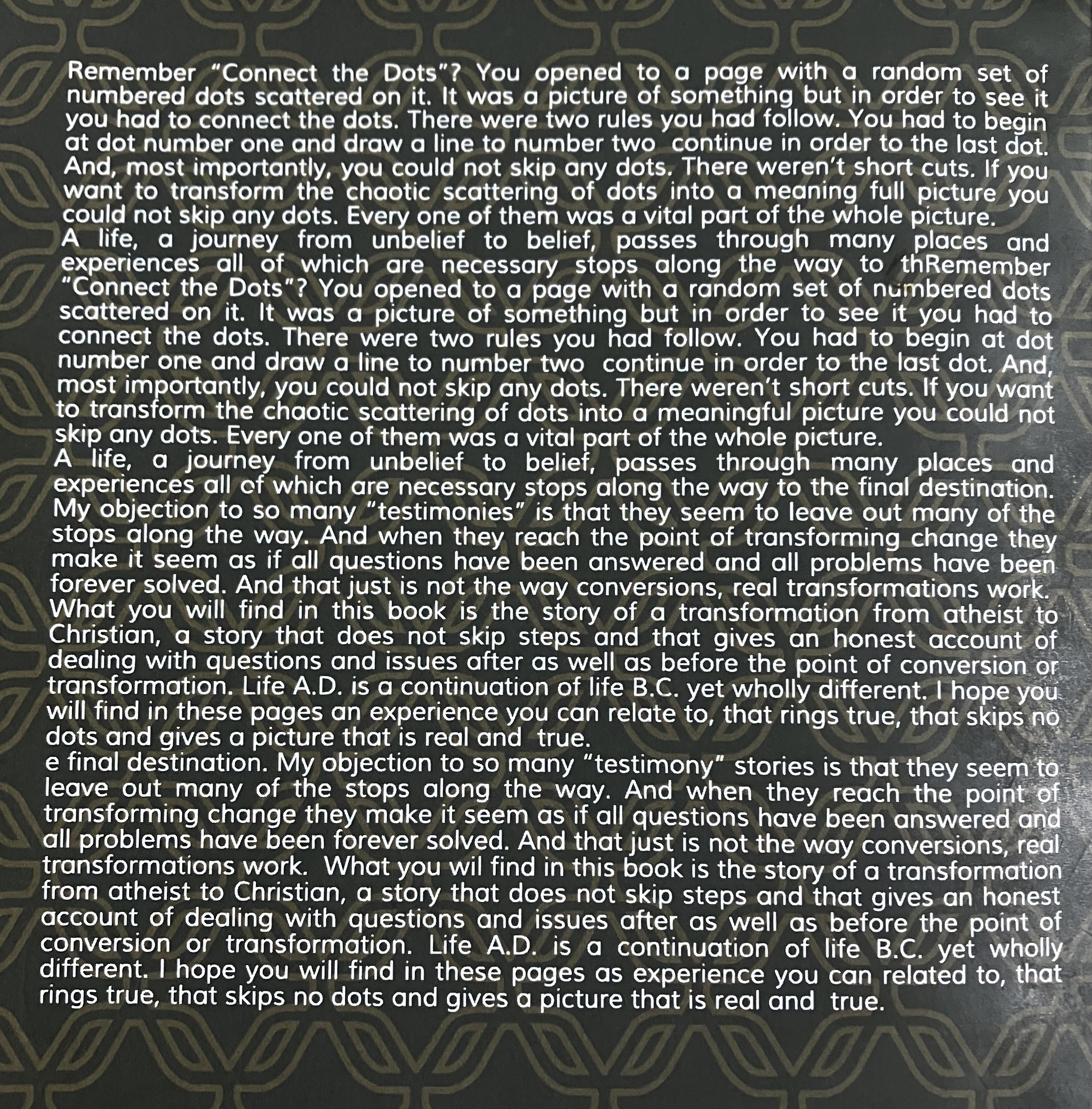

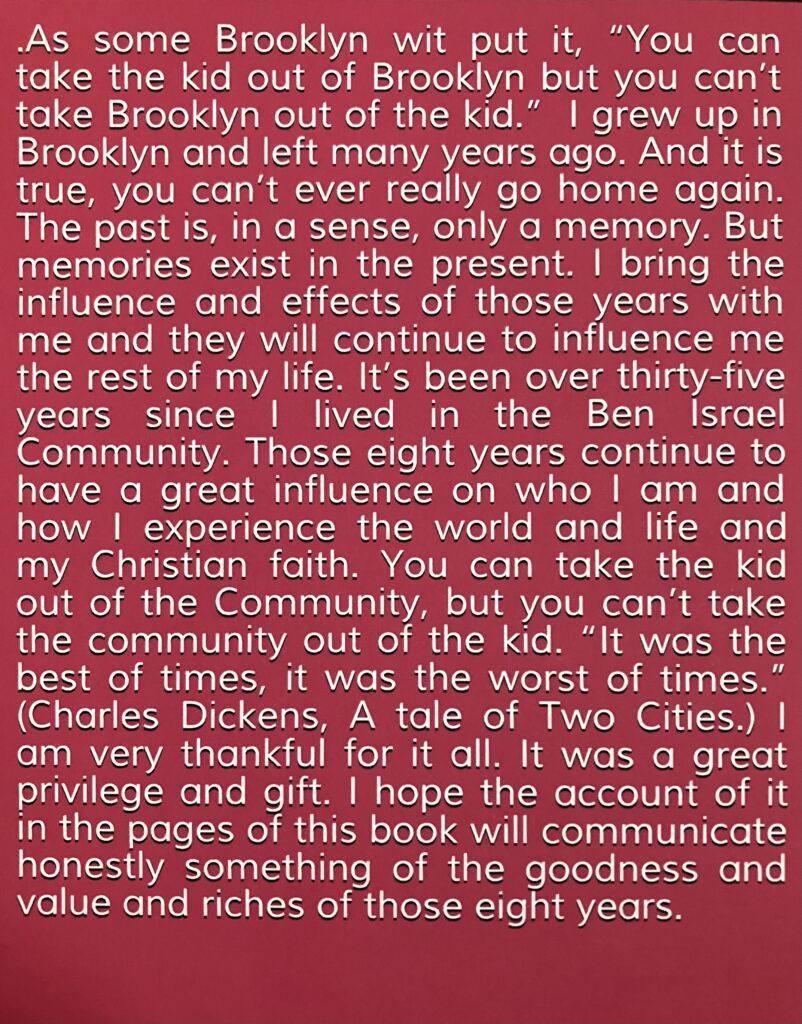
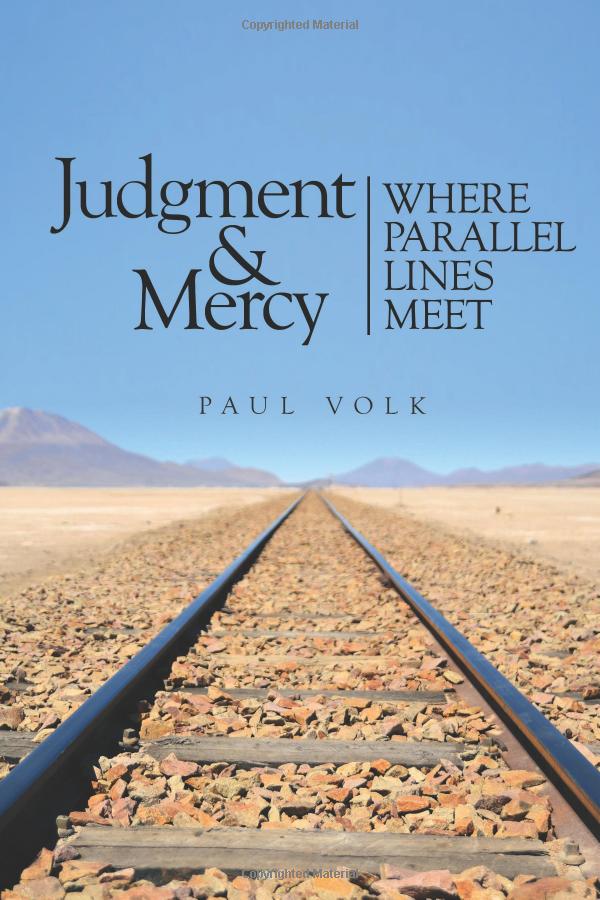
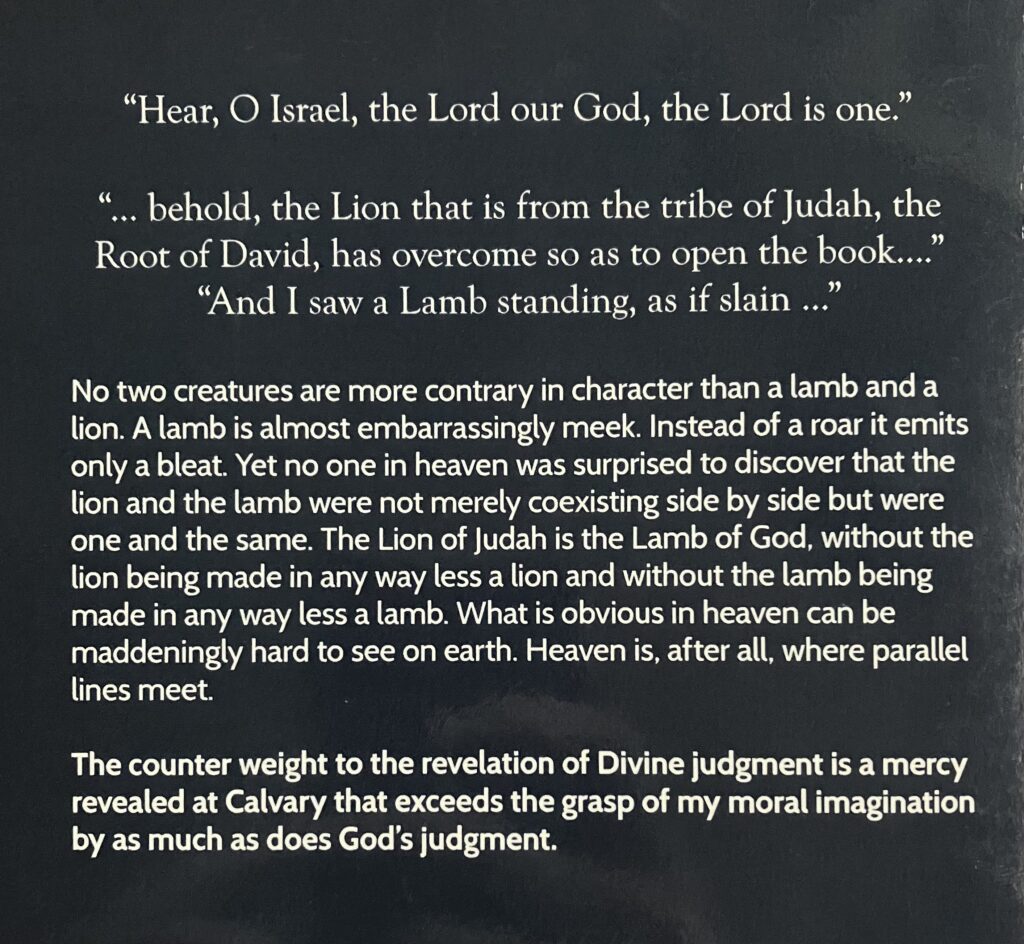
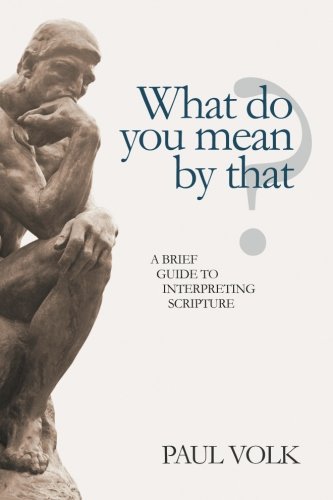
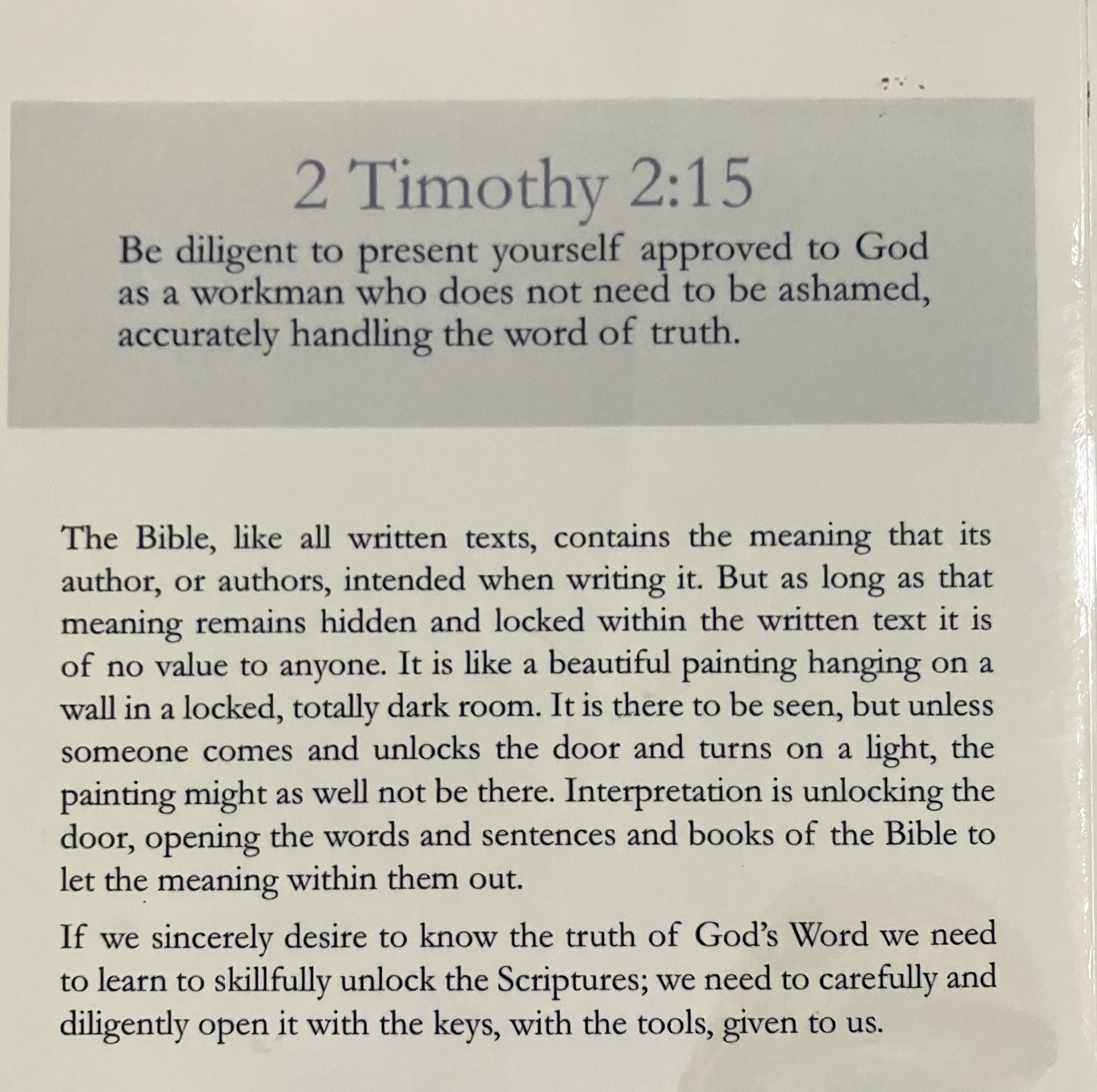
For Mandarin translation go to www.ccamus.org
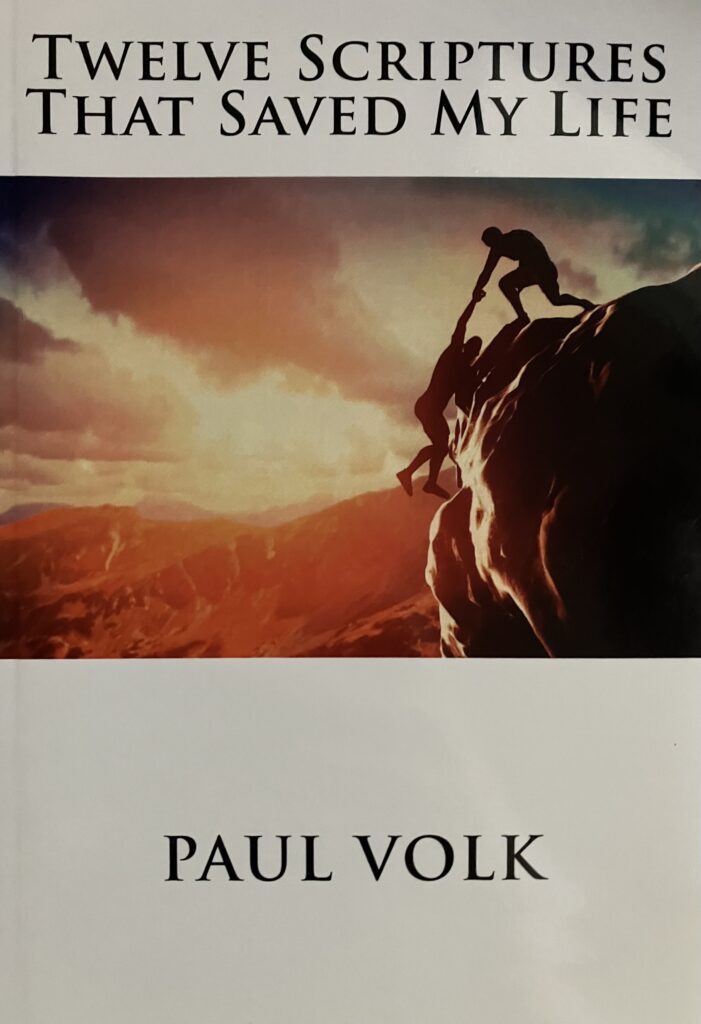
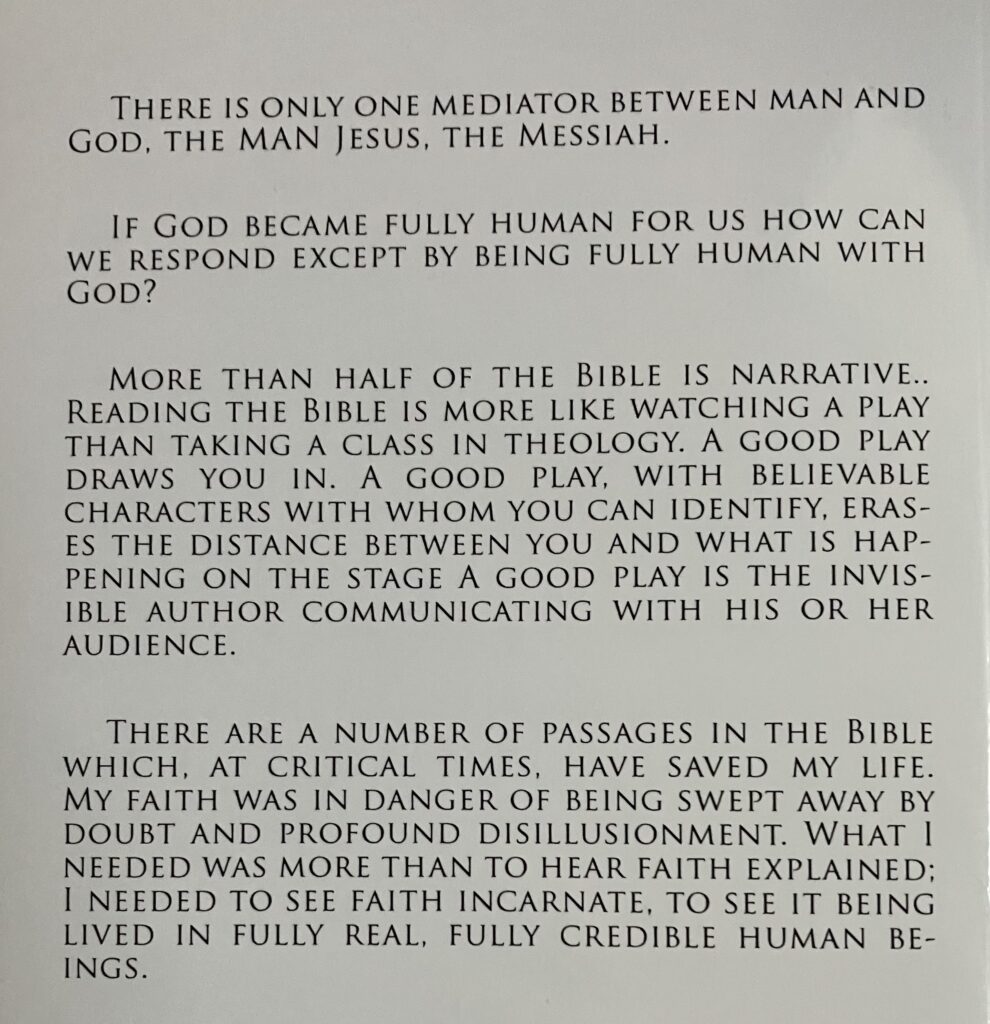
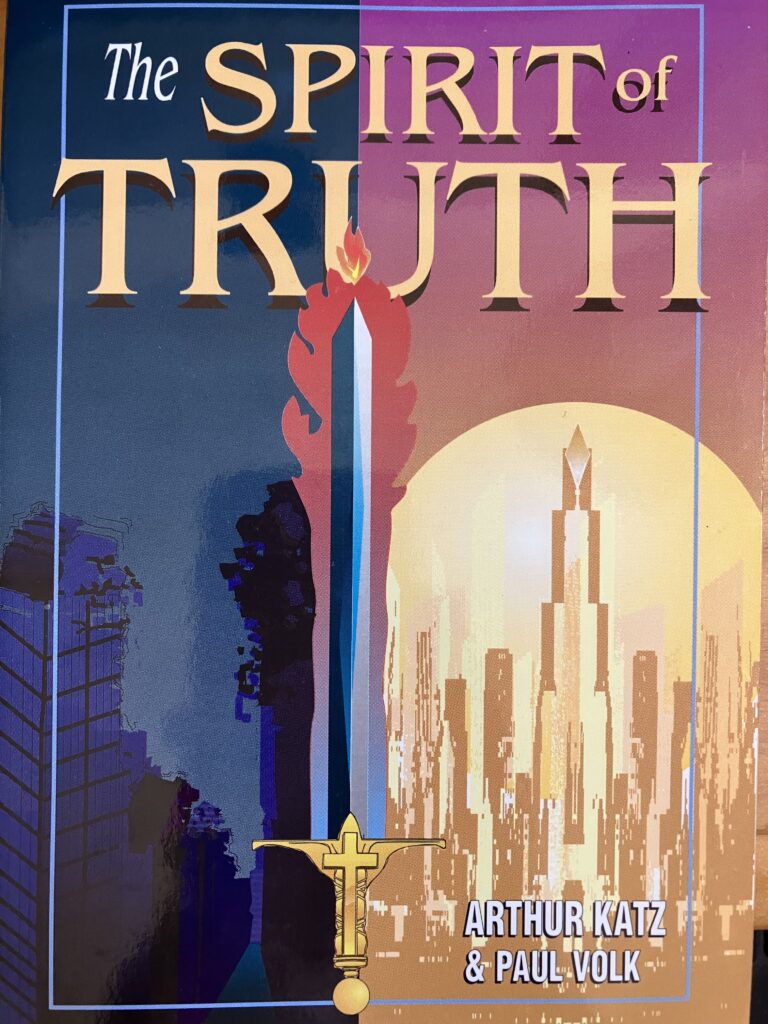
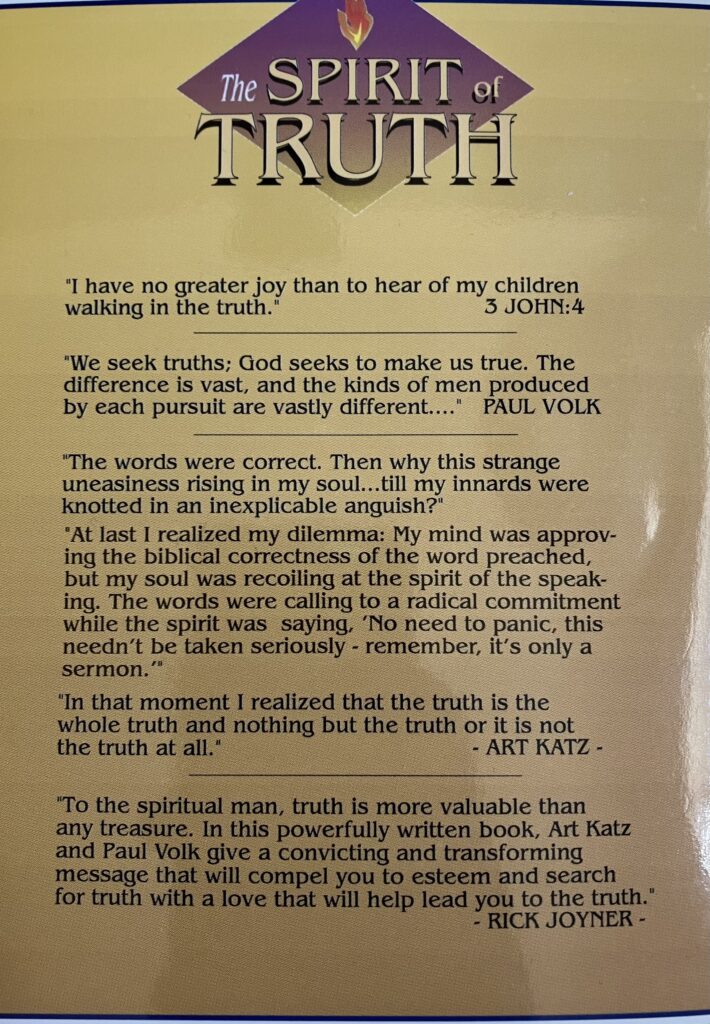
GRAB THE LINE
A man wakes up and finds himself in the ocean about a mile out from the shore. He doesn’t know how he got there. He does know that he has to reach the shore or he will succumb to exhaustion and drown. So he begins to swim towards the distant land. He is a good swimmer. But after many days he comes to realize that the current pushing him back out to sea is was too strong to overcome. Despite his best efforts he finds himself as far from the shore as when he had begun to swim.
And then he sees a ship approaching. The ship stops and the captain leans over the ship’s rail and calls to him in the water. “I will toss you a line. Grab hold and I will pull you up on board.” His first reaction is joyful relief, but then he pauses and calls back to the captain, “Thank you, but first I have a few questions. How did I get here? Was I on board your ship? Did I fall off? Did I jump off? I can’t imagine why I would have jumped off so far from the shore. Or perhaps I was thrown off the ship. Did someone, one of your crew, throw me overboard? Did you throw me overboard yourself?”
The captain responds, “Those are all good and fair questions. And they are not easily answered. I can answer many of them, but not all. The long exposure to the cold and the salt waves and lack of sleep has greatly limited your ability to hear and understand the answers to your questions. Grab hold of the line and let me rescue you from the sea. Come on board and let me feed you and give you dry clothes and let you rest and sleep and warm up. Then join me in my cabin and we can talk about your questions and you can meet some others who have been rescued and hear their stories and share yours with them.”
The man in the water, after pondering the captain’s words, responds, “No, that won’t do. I have to know how I got in this desperate condition; I have to know why it took so long for you get here, why you didn’t rescue me sooner. I have to know if you are responsible for my being out here in the water. Answer my questions first and then, maybe, I will grab your line and come aboard your ship.”
The captain listens and, pleadingly calls to him, “Please, grab the line. Once you are on board you will be able to understand. Right now you are not certain about me and the ship and how you got so far out from the land. But there are two things about which you are certain. I am here offering you a sure rescue. And you are drowning. Your only hope of saving your life and getting to land is to grab the line and let me save you.”
In April of 1973 in Berkeley I was certain of two things. I was still very far from land, and I was drowning. I had learned to swim only to realize that I was swimming against a current that no swimmer, however strong and skilled, could ever overcome. And then Jesus of Nazareth came and said he could get me to the shore. I had serious questions, serious objections to what I believed the Bible was saying, to what I perceived as Christianity. I wanted answers. And none of the philosophies and spiritual paths I had followed could answer my questions or get me to land. And the Jesus I was seeing was offering me himself, offering me a lifeline. I grabbed hold.
All of my very serious questions about the Bible and Christianity were still there. But grabbing hold of the line in the water was not a leap in the dark. My belief and trust were not without reason. And reason still saw and asked real questions. Many objections were met, but not all of them. And that was a good thing; it was reassuring. I had learned to be rightly suspicious of anyone who claimed to have all the answers. I am still leery of anyone who thinks he has all the answers, especially fellow Christians.
But the ship’s captain was willing and glad to talk to anyone who would grab the line and come on board. He said, “Come, let us reason together.”[1] Another translation reads, “Come now, let us argue it out, says the LORD…”[2] I grabbed the line and for the first time in a long time was soon warm, dry, well rested; and for the first time free of the deep, constant, gnawing hunger that nothing could ever satisfy. Enormous questions remained, and still remain to be answered. The ship’s captain never denied that they existed; he himself raised them. But before engaging them he gave me new, warm clothes and made me breakfast. “Come and eat, then we’ll talk.” We’re still talking. I’m still eating.
In the Land of the Caterpillars
ON THE PATH THROUGH THE FIELDS
In the land of the Caterpillars life was often short and always hard. The vast fields in which they lived were uncharted and uncertain. Searching for food and shelter sometimes led them into leafless deserts where many died of starvation or from the affects of the scorching sun. And the verdant fields, thick with large, green leaves, could prove equally or even more dangerous. Many of the plants that looked the most alluring were poisonous to eat. The caterpillars had voracious appetites and very little ability or desire to discern between the good and the poisonous leaves. And so while some suffered and died from starvation others perished with stomachs full and hearts content. And even when they were not poisonous, the lush leaves caused many caterpillars to forsake the quest for a lasting home and settle where the leaves were green, only to discover, too late, that even the greenest fields eventually turn brown.
A small number among them would dream of a better way of life. They spoke of curbing their appetites and marking the plants that experience had shown to be fatal to ingest. Others devoted their lives to searching for the path through the field of which the ancient legends spoke, while still others strove to forge their own path, scorning the legends as foolish myths. But most caterpillars were either indifferent or resigned. “We are caterpillars and this is just the way we are,” they would say. “There is no changing things. One path is as good as any other. Eat drink and be merry, for hairy, fuzzy, striped or spotted, we all get lost and die in the end.”
THE PATHKEEPERS
But one clan, among the fuzzy caterpillars, was different from all the others. They had a book that told them where and how to walk, what leaves to eat, and which not to eat. It was their belief that this book was given to them by someone they called the Great Landlord of the field. If they could perfectly follow the path it laid out and not break any of the rules for where and how to walk and what to eat, it was said that they would some day reach the home of the Landlord and live with him and eat from his garden forever. Not all of them believed in the Landlord or his book. Some, like all the other caterpillars, wandered off to follow their own paths, or no path at all. Some secretly or even openly broke the rules and ate whatever their appetites desired. But many of them did believe in the Landlord and tried as hard as they could to stay on the path. What these pathkeepers, as they were known, soon discovered however, was that no matter how hard they tried not to stray, they could not keep from wandering off into the fields or breaking some of the Landlord’s rules.
Philonomos [1] was one of the most devoted of the pathkeepers. He loved the Landlord’s book and the occasional glimpses of the Landlord’s house and scent of his garden that the book would often convey. Those foretastes inspired him to persevere on the path. But no matter how much inspiration he gained, it was always displaced by a greater discouragement when he would wander from the path or break one of the rules. And in time even the inspiring glimpses themselves began to have a discouraging affect on him. “It is so far away, and so high,” he would conclude. “And I am so wayward and so weak. Even if he forgave me for every time I left the path and ate some forbidden leaf, I could never climb all the way to his house at the end of the path.”
Sensing his growing despair his fellow pathkeepers tried to encourage him. Perhaps if he exercised more, one suggested, he could become stronger and gain in endurance. Another told him that going without any leaves for days at a time would free him from his desire for forbidden food. Sleep less, insisted another. Get more sleep, said someone else. Philonomos tried everything he knew to do and still he could not keep perfectly to the path. He was becoming more weary and discouraged with each passing day. After years of crawling, the Landlord’s house seemed if anything to be not closer but even further away.
THE COCOON IN THE TREE
“It’s no use,” he cried out at last. “I cannot ever reach the goal. No one can. It is too high and we are too feeble.” So one day, very early in the morning before the sun had risen, he crawled off beside the path and began to ascend a tall tree. Philonomos found a long branch and crawled half way to its end. He gathered some dry leaves and began wrapping himself in them. Then, just before closing himself in the snug blanket of leaves, he took one last look at the path stretched out below, and one last glance in the direction of the Landlord’s house. Then he set the last pieces of leaf in place, closed his eyes, and went to sleep.
His last thoughts, or perhaps his first dream, as he drifted into the deepest sleep, were of the caterpillar, many generations ago, who had claimed to be the Landlord’s son. The clan’s leaders had all said that he was a great deceiver and an enemy of the Landlord, that he taught people that they didn’t need to keep the rules. He was accused of breaking the rules and leaving the path himself. But he had claimed to love the Landlord and that he would give a new power to keep the rules and a sure way to reach the Landlord’s house to everyone who trusted in him. “The rule book is all about me,” he would say. But he was rejected and in the end given over to be put to death. But his followers claimed to have found his cocoon empty and to have seen him alive again. If only it was true, if only… , and with that last thought Philonomos lapsed into darkness and silence.
Days passed. The rest of the caterpillars, after searching for Philomonos, resumed their journey along the path. High up in the tree all was silent and still. The days became weeks. And then one day there appeared the slightest bulge on the side of the leafy
cocoon. Then the whole cocoon began to stretch and tear. At its tip very slowly a little head began to emerge. Philonomos opened his eyes. Slowly the events of many weeks ago began to come back to him. He was surprised to still be alive. The blanket of leaves wrapped around him had hardened from tree sap dripping on it day after day and so was proving far harder to emerge from than it had been to crawl into. Perhaps that was why he did not notice the changes that had taken place until he had gotten himself fully out of the cocoon.
WINGS
Instinctively Philonomos began to move his many legs in order to crawl down the tree and begin searching for some food. To his great surprise most of his legs were gone. But that was not the greatest change that he discovered. Flat up against each side of his body there was a long, slender, filmy something. He tried to press down with them as if they were legs but that only caused him to wobble precariously and nearly fall from his high perch in the tree. “I am stuck up here forever. I am worse off than I was before, for now I cannot even craw!!” he exclaimed. He kept struggling to somehow pull himself along with his new, mysterious appendages until he lost his balance completely while trying to negotiate a sharp curve in a narrow branch. He tumbled down through the air towards the fast approaching ground. Philonomos thrashed and kicked and spun and twirled and suddenly the two long, filmy appendages which had failed so miserably as legs spread outward from each of his sides and caught the rushing air swirling around them. Suddenly he was no longer falling but floating on the air. “Wings! I have wings!” he cried in utter amazement and delight. “I am flying!”
Gradually Philonomos discovered how to control their movement. Soon he was high above the tallest trees, gliding on the breezes, surveying the panorama of the fields below. Then he remembered his last thoughts in the cocoon and his last faint hope that the story of the Landlord’s son might be true after all. “He has given me wings to fly to the Landlord’s house,” he thought to himself. And all the dark despair that had led him to crawl into his cocoon was driven away by a new, bright hope and joy.
The next several days were filled with adventure, discovery and an almost giddy joy. Philonomos spent many hours mastering the use of his new wings. He ventured further from the tree each day and was finding fruitful and leaf-filled fields that he could never have reached on foot. He was also discovering that flying, while a great joy and liberation after having to crawl everywhere, had its own set of rules. A number of painful crashes helped teach him that there are right and wrong ways to take off and land. And the air was not always calm and gentle. Wind and updrafts threatened to pull him in directions he did not want to go. He was nearly blown far into a desert one day, and would have been, had the wind not suddenly changed direction. And he also discovered that he was not alone in the air. Birds had been a constant peril while he crawled on the ground. Up in the air there were even more of them, all quite eager and happy to eat him if given the chance. Flight had brought new pleasures and great hope, but also new perils.
Philonomos continued to test and master his new wings and to find increasing pleasure in flying. But he was not content. The longing that had ruled his heart when he had all of his legs was still present and unfulfilled. What he desired even more than to fly was to see the Landlord and enter his house. “These wings give me great delight, but even this pleasure is not enough; they must carry me to the Landlord,” he thought to himself. But now that he was up in the trackless air, how was he to know the way? Then one day, while circling high up in the air over the fields and meadows, he smelled an aroma that was new and yet at the same time familiar. It was just like the scent that would fill his senses and stir his heart when he would read the Landlord’s book, but now it was sweeter, more wonderful, more delightful and stronger than he had ever smelled it before. “It must be blowing from the Landlord’s garden,” he thought. “I must follow this scent and let nothing else draw me.” And back in the tree when he was not flying, he would read the Landlord’s book. He discovered that it spoke about flying in many places, though he had not noticed or realized it when he was wingless. Now he read it with renewed interest and pleasure. It was a perfect flying manual and instructor. And it proved to be like a compass pointing him in the direction of the Landlord’s house. Philonomos’ days were filled with reading, and then testing in the air all that he had learned.
BACK AMONG THE CATERPILLARS
But something else was stirring in his heart alongside the longing to reach the Landlord’s house. He wanted more than anything to get there, but not alone. The joy of finding and tasting a new leaf or fruit was always multiplied when he could share it with the other caterpillars. Flying was wonderful, and it made him want to share the joy of it with the others and to fly together with them to the Landlord’s house. And so his attention turned to finding the old path through the field. He had to fly low, beneath the treetops, in order to find and to follow the path. Before long he spotted the stragglers, and then the rest of his caterpillar clan. He landed beside the path and was soon seen and approached by a group of caterpillars, several of whom he recognized. But they did not seem to recognize him. Excitedly he began to tell them all that had happened to him over the past several months. As he spoke his voice and demeanor gradually convinced the other caterpillars that he was indeed Philonomos, but instead of joining in his joy they became distant and suspicious. “Then, why did you take so long to get back on the path and catch up to the rest of us?” one of them said. “I told you, I was learning to fly!” he explained. “So you would rather fly about in the air than keep to the path and follow the ways of the Landlord, is that it?” another countered. ”No, no,” said Philonomos, “I want to follow the ways of the Landlord now even more than I ever have.” “Then why aren’t you walking on the path and keeping all of his rules?” was their response. “I love the Landlord,” said Philonomos, “and long to see him more than ever, just as he commanded us, and I love my fellow caterpillars and want to fly with them to his house. Isn’t that what he commands us in his book? Isn’t that the whole meaning of all the Landlord’s rules? I don’t want to use my wings to fly to anyplace or do anything that would keep me from reaching his house.”
Philomonos thought that his answer would surely soften the pathkeepers’ hearts. “After all, since they are so devoted to the Landlord and his rules they must recognize the essence and meaning of the rules as much as I do,” he thought. But instead of becoming softer they only became more adamant. They erupted in anger and hostility. “We were afraid that this might happen. Before you disappeared from among us you were always talking about how hard, how impossible it was to stay on the path and keep all the rules. As if the good Landlord would direct us on a path that could not be followed and give us rules we couldn’t keep! None of us complained about how hard it was. And we tried to make you see that you were only making excuses for yourself. We told you to skip eating to discipline your appetites, and to sleep less and begin an exercise program but you just dismissed all of our help. We thought you really were a true pathkeeper, a real lover of the Landlord and his ways, but now it is apparent that you have always loved your own pleasure and comfort the most. You have left the path and now you have come back only to try to lure others into leaving it!”
Philonomos stood in stunned silence. He had expected a very different response. He thought for sure his fellow pathkeepers would be excited and encouraged by his story and would be happy about all that had happened to him. He was prepared to tell them all what they could do to acquire wings as well and begin to fly with him. He was unprepared for the anger and rejection with which he was being met. “You don’t understand. It is the Landlord himself who has given me these wings. Using my wings to seek after his house is fulfilling the rules, isn’t it? “
“Nonsense!” scoffed one of the older caterpillars, “We are keeping all the rules about climbing and moving pebbles and digging and eating the leaves along the path. If you want to keep his rules crawl with us on the path as the rules prescribe.”
“But the whole purpose of the path and the rules is to get us to the Landlord’s house,” replied Philonomos. “The rules were made for us, not we for the rules. Flying has its rules. And up in the air there is the scent of His garden. It leads me to his house. It keeps me from wandering off and getting lost. The rules never kept any of us from getting off the path. And it was not the rules but the scent of the Landlord’s garden filling his book that would always draw us back to the path. It is that very aroma in the air that makes me want to reach the garden rather than follow any other way. And my wings make me certain that I will reach the goal. Flying isn’t instead of following the path, flying is a better way, really the only way, to follow the path to the Landlord’s house.
“We have the path and the rules; and we have legs to walk on it. We have no need of wings and your imaginary path in the air!” came the angry reply. “If you are truly still a pathkeeper then tear off those wings and walk the path as the rest of us do.”
“Tear off my wings? They are my only hope of reaching the Landlord’s house. They are his promised gift for all who truly love him and desire above all else to come to his garden.”
“So, you are accusing us of not loving the path and desiring to reach the Landlord! We are the ones who have kept to the path. You are the one who gave up and climbed that tree and now spends his time flying off to eat and drink. You are just like the spotted and striped caterpillars who do not have or keep the Landlord’s book. You are a pathbreaker! You are no longer a fuzzy caterpillar! Depart from us!”
And with that some of the caterpillars picked up stones and began throwing them at Philonomos while others began to shout, “Tear off his wings!”
THE BUTTERFLIES
Philonomos fled in confusion and dismay. He flew back to his home in the old tree and turned for comfort and understanding to the Landlord’s book. And then what was happening began to make sense to him. He read again about the Landlord’s son and how so many among the pathkeepers of his day had rejected him in the same way as they had rejected Philonomos. He read further of how those angry and blind pathkeepers finally killed the Landlord’s son, and wrapped him a burial cocoon, thinking they were doing the Landlord a service. But there were also many fuzzy caterpillars back then who, like himself, had heard the Landlord’s son and believed him and followed him. Now he understood how he had gotten his own wings. The story was true, about how the Landlord made his son alive again and that when he came out of his cocoon he had wings. And his promise of wings with which to follow the path through the air was being fulfilled for everyone who would follow him into his own cocoon, trusting him.
The report of Philonomos’ return spread throughout the fuzzy caterpillar camp. Many joined in the anger and rejection with which he was first greeted. But some of the caterpillars, mostly from among those who had not been pathkeepers, but even a few from among the pathkeepers themselves, began to seek out Philonomos and hear his story. And many went into their own cocoons and emerged with bright and shining wings. They would band together and fly, along with the striped and spotted butterflies who had heard and believed the story of the Landlord’s son. They had very different pasts and backgrounds. Some had never known about the path and the book, and some had been devoted pathkeepers. But the one thing they all shared now was a passionate love for the Landlord and his book, and a great longing to reach his house and garden. They all followed the sweet scent that wafted down through the air as well as out from his book. They all loved his path and his ways and flew in pursuit of the Landlord and his house with delight and satisfaction and burning desire.
The fuzzy caterpillar clan continued to tread the dirt path, and to wander off and break the rules. And most of the other caterpillars continued to eat and drink and make the best of their lot in life. And always overhead there were the butterflies. They were ignored by many, mocked by some and hated by others. But now and again a caterpillar would look up and watch a butterfly soaring in the air above and begin to believe that he was meant to fly, and to long in his heart for wings.
Two Monks
Two monks were returning home from a long journey. They came to a river. The water had risen since they crossed it weeks before and the current was strong. As they approached they noticed a young girl sitting at the water’s edge, weeping. They asked her why she wept. She answered that she lived on the other side of the river. She too had been on a journey and the river had risen and was now too deep and the current too strong for her to cross. One of the monks then said he would be happy to help her and offered to carry her across the river. She gratefully accepted his kind offer. He then lifted her in both arms and, holding her, he stepped into the water, his fellow monk beside him.
When they reached the other side of the river he set the young girl down. She thanked him and turned towards her home down the far bank. The two monks continued on their journey back to their monastery in silence. After some time the second monk turned to his brother, and with much agitation said to him, “I cannot remain quiet. How could you, a monk, a holy man, lift a young girl in your arms and carry her across the river?!” The first monk turned to his companion and calmly responded, “My brother, when we reached the other side of the river I put the young girl down. Why are you still carrying her?”
HAIL, JOSEPH
I was already seventeen, much too old and grown up to pay much attention to a girl three years younger than me, and very shy and quiet. That’s when I met Miriam for the first time. I don’t think we exchanged ten words that day when my parents and hers sat together and talked. It wasn’t until almost a year later that I had any idea what all the questions and arrangements were about. And it wasn’t all that surprising when I did understand; after all, every marriage was arranged by the parents of the boy and the girl. She was from a good family, they said, from Judah, in David’s line, just like ours; it would be a good match, they said.
We would see each other at weddings and funerals and family gatherings. I was old enough to be interested in girls and as she grew older, well, she became more interesting. O, she was attractive enough, but it wasn’t just that. There was something about her, what had appeared as shyness in the young girl I had known I now saw as innocence and deep, quiet beauty in the young woman. She was innocent and without guile, but not simple, and far from a fool. Her wit was sharp and clear and her laughter was frequent and full. At fifteen she was like a beautiful flower about to bloom. I was in love, and I marveled at how providence could have brought me such a bride-to-be through the arrangements of others without my seeking her out myself. And I marveled all the more that she should feel the same love for me.
I was a few weeks from my eighteenth birthday when we celebrated our betrothal. The whole of our families gathered as we exchanged our vows and set the time for our wedding. We were now sworn to each other, bound by custom and united in love.
“May it be through this union that the Messiah comes to set us free from all our enemies!” How many times had we heard that prayer and blessing. Every mother in Israel, and especially in Judah and the family line of David, prayed that she would be the one to bear the king, the son of David, long promised and long delayed. When I would hear it I would wonder if one day it would actually happen. A deliverer would surely be welcome and I supposed he would have to be someone’s son, but several centuries of waiting and hoping made it easier to doubt than to believe. I could hardly imagine being the father of a king. I was far more occupied with thoughts of Miriam and the joy of a lifetime together with her than with thoughts of kings and deliverers. I cared nothing for palaces and fame, the quiet obscurity of our village and a carpenter’s shop was all I desired, and so did Miriam.
With each passing day our joy grew more full and our expectation more sure. We would talk for hours about our future life, our home, and the children that would fill it. I never dreamed I could be so happy, and my happiness grew greater seeing how happy Miriam was. It was as if everyday was full of bright sun, as if clouds had been banished from the sky over our heads. We were blessed, more blessed than any man and woman in all of Israel, in all the world. God had smiled on us.
And then… I can hardly speak of it even now. There is one line in one of the Psalms, a cry to God, “You lifted me up… and cast me down.” God had lifted me up, had made me happier than I would have dared dream, had filled me with joy and hope, only to cast me down. I sensed something the first moment I saw her. She was the same, but not the same. She said nothing; I asked nothing, until one day she came and began to tell me a strange and, well, an unbelievable tale. I sat dumbfounded as she unraveled her story. With an expression of unchanging innocence she told of being visited one night by… by an angel.
Alright, I thought. This is certainly odd, but I suppose not impossible. She believes she saw an angel and she is not one of those peculiar women who was always having visions and hearing voices. This was Miriam, my soon to be bride. I hadn’t planned on being married to a woman who saw, and conversed with, angels. But this was Miriam.
And then she told me what the angel had begun to say to her. He greeted her as one favored by the Lord, favored by being chosen to be the one to bear the Messiah, the deliverer of Israel. Alright, I thought again. If those ancient promises were true then someone, someday, would have to be the one. Why not Miriam? If I so loved her, if I so delighted in her innocence and humility, wouldn’t the God of Israel delight in her as well? But then I wondered, if we were the one’s to bring the son of David into the world, why had the angel not made his announcement to me, or at least to us together? After all, I had a very significant, I dare say, indispensable role to play. The truth is I felt rather slighted, overlooked. “Favored of the Lord”? And what about me? I was caught in a perilous dilemma; either Miriam was imagining the whole thing, in which case I was betrothed to a woman given to religious delusions, or it was true and I was ensnared in feelings of being slighted, relegated to a mere supporting role in a drama that would forever elevate the place of my wife, a woman, above me, her husband, a man, the father of this child to be born.
And with my mind already reeling and my emotions beginning to strain at the reins I listened as she continued to relate the message the angel had brought her. “How can this be,” she had asked him, “since I am a virgin?” As I listened I thought, what an odd question. Sarah had laughed when she was told that in her old age she would conceive. And though a miracle was required for her to conceive, it was not without Abraham that the miracle happened. If a virgin was going to conceive it would be by the same means that a barren Sarah had. When Sarah conceived she ceased to be barren, and when the virgin conceived, she would of necessity cease to be a virgin.
But as perplexing as Miriam’s question was, the angel’s answer was far more perplexing and surprising: “The Holy Spirit of God will come upon you and so the child will be the Son of God.” What was I supposed to say to that? What would our father Abraham have said if the God of Israel had said to him that next year Sarah would have a son and not to worry, because God himself would be the father; he, Abraham, had nothing to do with it at all other than to be there to raise someone else’s son?
Alright, I thought. What do I do now; what do I say? And immediately the answer came: Nothing. Do nothing, just wait, and with the passing of time, as nothing happens, she will realize herself that it was all a strange delusion, an aberration of mind brought on by the implanted wish passed on from generation to generation for the coming of the salvation of God. And then she would return to earth and reality and we would resume our happy life together and marry and be normal. And I could wait, because I loved her so. And I would be there to comfort and uphold her as the strange dream faded. And then she said she had to tell me one more thing: she was pregnant.
It had been almost a month since the angel’s visitation and the signs were unmistakable. There was a baby conceived and growing in her womb and I was not the father. O Miriam, what have you done? What madness, what delusion had possessed you? Did you know it was not true, that it was a colossal lie to cover your own wantonness and lust? Or did you believe it in your fervor and turn sin in your mind into a holy act of God? And which explanation was the worse? Either way our world, my world, was shattered beyond repair. For a moment, as I contemplated the penalty the law of God prescribed I pictured myself hurling the first stone in vengeful anger. But that emotion passed and dissolved away the moment I looked in her face. I could no longer marry her, I could no longer share my life with her, but I could not stop loving her. I would quietly annul our vows of betrothal and send her away and wait for my broken heart to heal. I could not hate her or allow any further and greater harm to come to her. I loved her and would continue to love her.
She did not protest. She said nothing as I told her what I, what we must do. She said she wanted to visit her cousin Elizabeth. Perhaps it would be best if she went away for a while. How could she yet be so innocent, so pure, so quiet in her sin?
There is no sadness deeper or darker than that which had once been joy, no despair greater than ruined hope. I occupied myself as best I could with work but never ceased to think of what would happen as the fruit of sin grew in Miriam’s womb, until it became plain not only to us but for all to see. How would she bear the shame and guilt? How would I? How would I explain the reversal of all our plans, of all our hopes, of the course of the life that had been so clear and certain?
I sought refuge in work, in the mind-numbing rhythms of the carpenter’s shop, often working late into the night, alone. Then one night, as I was about to extinguish the last of the lamps, I heard a voice out of the shadows. “Joseph.” “Yes?” I replied. “I’m sorry, I was so distracted I didn’t hear you come in. I thought the door was already locked.” “It was,” he said. “And it still is. I came to open it for you.” The last thing I needed was some cryptic madman spinning riddles in the middle of the night. “Who are you and what do you want?” I asked. And as if he never heard my questions he continued, “Joseph, we need to talk, about Miriam and about you. Your secret will soon be open for all to see.” Now I was beginning to feel afraid. Who was this and how did he know about Miriam? Before I could open my mouth to ask he said, “Yes, I know all about the baby in her womb, and the angel who came to her, and your plans to send her away. I know all about that angel, Joseph, you see, it was I. “
“Or would you feel better if I glowed a bit in the dark and greeted you, “Hail, Joseph, the favored of the Lord!” And with that he stepped out of the shadows. “And you are favored by God, or did you think He had chosen Miriam without regard for who it was who would stand beside her, to shield her from scorn, and comfort her in her pain and be a father to her son? Yes, Joseph, you are highly favored and blessed, but not quite in the way you had supposed or would have chosen yourself. You are the one chosen to bear the accusations and the shame, the cruel jests and the pointed fingers, to hear “cuckold!” spoken of you out of the shadows, and “whore!” spoken of Miriam, and “bastard!” spoken of her son. Hail, Joseph, blessed of the Lord, for you are chosen to be a father to someone else’s son, to take a pregnant woman as your wife, to be like a father to the holy One of Israel.
Has it been hard for you, Joseph, not believing all that Miriam told you? Joseph, I know how hard it was to believe, that’s why I have come to tell you it is true. But as hard it was to bear before you knew it was true, it will be much harder to bear now that you believe, now that you know the truth, now that you know that the accusations are false and you cannot explain, cannot make them see, cannot make them believe. Joseph, don’t ask me to appear to all of your neighbors and family. Only a few shepherds, some Gentile stargazers and two old people in the temple will see this baby and believe. There is a day coming when everyone will see and know who this baby is, but not now, Joseph, not yet.
Hail, Joseph, highly favored of the Lord. Go now and take Miriam as your bride and stand with her under the canopy and speak your vows and hear hers and know and believe that the child in her womb is the Messiah, the Holy One, the Son of the living God.“
And he was gone, the room was dark, and I bolted up, suddenly awake. I had fallen asleep and had been dreaming. But it had not been an ordinary dream. Was this my own delusion, my mind’s solution, conceived in grief? But I could not doubt. Those words, heard in a dream, were more weighty, more sure, more irresistibly true than any I had ever heard when awake.
Early the next morning I went to see Miriam. I stood speechless before her unchanged innocence. Echoes of my words to her, my plans to send her away, were sounding in my ears. Reflections of her face as she had listened silently to my unbelief filled my eyes. I hadn’t believed her; who, then, would now? I would.
“Joseph,” she said, “you look like you’ve seen a…” “An angel? An angel, Miriam.” She began to smile. How much more beautiful she was, even more than I had ever seen or realized. There is no joy greater than that which had once been sorrow. I reached out and took her hand in mine. “About the wedding, we really need to make plans before…” “Before I get much bigger?” she asked, and began to laugh.
THE WART AND I
Colorado, March 2022
Now it was March. We had been in Colorado for a whole year. But this year end chapter in the story of our move from California was totally unexpected. I knew it would make a pretty good story but I would have preferred to skip this chapter. I don’t like feeling vulnerable and I don’t like having a deeper revelation of what it means when someone says “I needed this like a hole in the head.” But providence, which I fully believe in, takes some strange and unexpected turns sometimes. People fall everyday and they don’t wind up having a neurosurgeon saw a hole in their skull and drain a pool of blood from under it. So now I have more questions for the God I trust. “What does all this mean? What greater good is this meant to produce? (maybe a greater humility).” Lying on a hospital bed wearing a hospital gown and needing to ring for a nurse to help me get to the bathroom… and being helped to get through taking a shower… The reality is I have no way of knowing the full extent and nature of the damage done when my face hit the ground. There is a long period of recovery ahead. My pride is making a speedy recovery. My brain is somewhat slower. I just need to keep remembering this whole story. I don’t want any of this to be wasted. The prognosis is a full recovery if I am not stupid about it. I have a walker (a four-wheeler) for longer walks outside. And a few unrelated but annoying and humbling other conditions to deal with. But the concern and caring coming from the church family here has already been amazing. And the comfort of telephone and text connections with friends from (literally) all over the world has been a great compensation (though honestly I would rather have not gotten a hole in the head to be the recipient of all this. And if it was up to me (very little is) I would have had that wart obliterated on the first try, though being led to the hospital basement and the machine that took a scan of the inside of my head might just have saved my life. So thank you, little virus friend. Your tenacity brought me back to the doctor’s office where she said “go to Good Samaritan and get a CT scan…” I’m glad I did. She was more concerned than I was about the possible causes of some things I was experiencing.
3/30/2022
THE WART AND I
I have had a number of warts take up residence, usually on one or both of my feet. If you walk around barefoot near a public pool or in a locker room your chances of soon finding a wart or two on your foot are fairly high. The treatment was always freezing them with liquid nitrogen, and they were never heard from again.
After many wart-free years I/we moved to Boulder, Colorado and I began to frequent the local rec center pool. Then I noticed what looked like a blister on the side of the big toe of my right foot. It was easily irritated when I was walking. I assumed it was an infection of some sort and so I made an appointment to see a doctor. I got a prescription for an antibiotic and assumed that the pain and irritation on my toe was fully dealt with. But it persisted. Whatever it was, it was proving stronger than the medication that was meant to kill it. I returned to my doctor (whom I liked very much).
She looked at it and said she thought it was a wart. I was surprised but I trusted her judgment. She took a small sample of the skin to be tested. I was again surprised when her guess was confirmed. But the wart did not heal and disappear. The blister would re-form and interfere with walking and then it would hurt enough at night to keep me from sleeping. And that prompted me to make another appointment to see the doctor. That would have been for Feb. 23rd. However, because the wart was now keeping me up at night most of the time, I moved the appointment up another week to Wed., Feb, 16th. On the Tues just before that appointment Adrienne was noticing that my walk was unstable and that night while at the local rec center my legs gave way as I was getting out of the hot tub. These things coupled with a concern about my tiring very easily and my frequent nodding off as I was reading prompted Adrienne to suggest accompanying me to my doctor’s appointment on the next day. She may not have trusted me to give a full and accurate report of the things she was observing. So the next day we were back in a room with the doctor who had been right about the wart. When she heard my wife’s report of what she had been observing her response changed the whole course of our lives. She said that the things that I was experiencing were often the effects of neurological causes and she wanted to eliminate those causes as much as possible. She suggested a “CT” scan some time before our next appointment which would have been on 3/9. We called about an appointment for the scan and were told there was an opening the next morning, early on 2/17. Why not take it and get the scan over with. I was beginning to see a small snowball beginning to roll down a long, steep hill. It was getting larger quickly. The bottom was nowhere in sight. This persistent little virus that survived the first attempt to kill it was now leading me by way of the doctor who first treated it to the local hospital for a radiological scan of my head. I wondered, what if the wart had been successfully treated and had not recurred? I would not have returned to the doctor’s office and would not have had an appointment for a radiological examination.
The result of the scan on 2/17 was the revealing of a significant hematoma, a blood clot or pool of blood between the membrane surrounding the brain (the Dura) and the skull. A blood vessel had been breached and had been bleeding beneath my skull. Really? Yes, really. I knew enough to conclude, along with the doctors, that this was not good and not something to neglect. They said it was blood that had been there for a while so the injury that caused the bleeding had taken place some time ago. That got me thinking and I recalled tripping and falling hard on my face about six weeks earlier. Hmm, cause and effect? My recollection of my headfirst fall was still very vivid. I had landed on my face and my first thought was that I may have broken my jaw. That was not an experience I wanted to ever have, even if it became a good story. It really hurt but I got up, walked back to my car and drove home. Surely it would soon stop hurting. No need to see a doctor. The pain did subside, and my life resumed its customary pattern. But now I was sitting in a doctor’s office listening to her talk about neurological causes, and CT scans. What had I gotten myself into? I immediately sensed that this was not good. Definitely not good.
After having the CT scan we were immediately moved to the emergency section of the hospital and from there admittance to the ICU. The pace was quickening. I couldn’t keep up. Surgery was scheduled for the next day (Thursday morning) Surgery? For the first time the word “surgery” entered the conversation. I had my appendix removed when I was six years old but as I recall it was not necessary to cut open a hole in my skull to get at it. Okay. You mean cutting open my scalp and then sawing open a hole in my skull to get at and drain that pool of blood that was already displacing some brain tissue? Right. That was exactly what it meant. That pesky little virus [wart] was setting in motion something no previous wart had ever precipitated. But the momentum seemed quite unstoppable.
So my ability to reflect and draw logical conclusions was still fully intact and now, as a patient in an intensive care unit I thought about how fortunate it was, I was, that my wart, pesky little virus that it was, had not been successfully treated and killed on the first try some weeks before. If it had been, I would have had no reason to make another appointment to be seen by my doctor; the idea of a scan would not have surfaced and the hematoma would not have been discovered. Neurological causes? But now one night of being kept awake by the slight pressure of a sheet on the surface of a wart- infected toe had quickly led to being admitted to a local hospital. I had never thanked a wart for being persistent and surviving a serious attempt to eradicate it but now, as a patient in a bed in an ICU unit of a hospital I was feeling thankful for that bit of troublesome virus beneath the surface of my toe. There was, it turned out, something far more sinister and dangerous going on beneath the surface of my skull, the discovery and elimination of which could have life-saving significance.
.
Lying in my hospital bed before the surgery the lyrics from an old song stored somewhere in an undamaged part of my brain began to surface. What started sounding in my mind was “What a difference a day makes, twenty-four little hours…” the day of reference being the almost forgotten one on which I fell on my face. I had no idea I had ruptured a blood vessel beneath my skull. I also recalled a common expression used to refer to something that was not good or in any way welcome. I said to myself, “I needed this like a hole in the head.” Well, I was about to get, literally, a hole in the head.
The surgery, a craniotomy, was over six weeks ago. Hospital time is slow and boring and tedious and allows for no amount of personal dignity or pride. (ever worn a hospital gown every day for a few weeks?) I couldn’t sleep most nights and eating, instead of being a minimal source of pleasure, quickly became work. Appetite gone. Would it ever return? I did come to respect and esteem the nurses and the physical therapists. The rationale for the physical therapy became clear: they wanted to get me stable enough on my feet to be reasonably confident that I could be released and sent home with little if any likelihood of my killing myself by falling on my head again. I have been home for several weeks now, sleeping in my own bed and watching reruns of Carol Burnet shows at ten O’clock. No near disasters. The food is better and we have been able to take walks OUTSIDE. What I most want back is sleep. A full night of deep sleep transforms the coming day.
Once you get past the level of minor injuries and events it is easy to lose sight of the true proportions of what has happened and of the ongoing effects of the injury or illness. The brain doesn’t snap back in a few days so that life can simply resume. It slowly re-expands to fill the space usurped by the hematoma. I have been assured that I am on a path that leads to recovery. But traveling that road requires much patience and endurance. I never had a lot of either. We have been inundated with prayers and consoling words from people we know from all over the world. Really. That makes a difference. We are still very new here in the Boulder area. But we have been so fully embraced and cared for and about. We are surrounded by very many very good people. At a vulnerable time that makes an enormous difference.
I have always been after and looked for the MEANING of events and circumstances. My prayer has always been, “Lord, I don’t want any of this to be wasted. I want all the meaning and all the effects of this or whatever it is. Help me understand what is going on. I think that comes down to what I think is His answer: “PAY ATTENTION!” As my old friend Socrates famously said, “the unexamined life is not worth living.” Well, I was well into examining this new, unexpected change of direction in my life and like a hole in the head I would have gladly given up the experience and whatever wisdom it would yield.
I Hope this condensed narration (it really is condensed) will convey something of the ongoing meaning of the events in our lives over the last six or seven weeks. I have been home for a couple of weeks now. Our house has been fortified with “grab bars” and I was navigating with a four wheeled walker both inside and outside (but now have graduated to using it only while outside). Remaining perpendicular has become a very high priority, possibly a matter of life and death. The recovery time is long. My trusty old brain needs to slowly expand and reoccupy the space usurped by that hematoma. I am becoming acquainted with the passenger seat in our car and my wife, not wanting to leave me home alone, has me coming along to her various appointments. The days are long and slow and I need to make good use of the time. I really want to start sleeping through the nights and my appetite has finally returned. So that’s the latest chapter in the ongoing story of Paul and Adrienne’s move to Colorado. A long walk on a Pacific beach would be very therapeutic now but the beach is over a thousand miles to the west so that won’t be happening for some time. Feel free to text or email or call or even show up at our front door. We have the room and would love to see you. If you do come please… be careful going up and down the stairs to the basement.